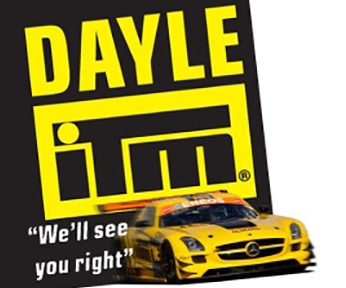The IndyCar Series and points leader Scott Dixon appear to have come to a disagreement over the red flag that cut this morning’s Indianapolis 500 short.
Dixon dominated much of the race, but spent most of the run to the flag behind eventual winner Takuma Sato. While Dixon didn’t appear to be closing in on Sato quick enough to make a strong attack for the win, traffic was becoming an increasing factor. That was until a crash with five laps to go for Spencer Pigot.
The crash prompted a safety car, with commentators and others believing the race would likely be red-flagged to ensure the chance of a green-flag finish. However, the race ended up carrying on under safety car — prompting some criticism from fans on social media and from a selection of drivers. In the wake of the various comments, the IndyCar Series issued a short statement explaining the decision.
“IndyCar makes every effort to end races under green, but in this case following the assessment of the incident, there were too few laps remaining to gather the field behind the pace car, issue a red flag and then restart,” said the series in a statement.
Dixon is among those who disagree with the decision, citing that a red flag should’ve been brought out due to “the size of the crash” and “where it was”. The series leader also said he believed recent precedence in the category is on his side, too.
“It wasn’t going to be a quick clean up. I was kind of surprised they didn’t. They said, ‘normally we don’t do that’. History would tell you that’s not true, either,” said Dixon. “For us, it would have been really good because I think the leader would have been a sitting duck. That’s harsh on Sato. If they got out there and had a dash with three laps to go, I think all is fair in a situation like that.
“I think if they had thrown a red, the restart, the car in second in a scenario like that where you’re not trying to save fuel, going flat out, the leader would have been a bit of a sitting duck unless he did something very weird or strange that caused a bit of a chain reaction or an accordion effect. If there was a three-lap shootout, that would have been pretty fair.
“[The] last few times it was maybe more laps to go in the race. I think if they called it pretty quickly like they typically do, you still could have had at least three laps to fight it out.”
















